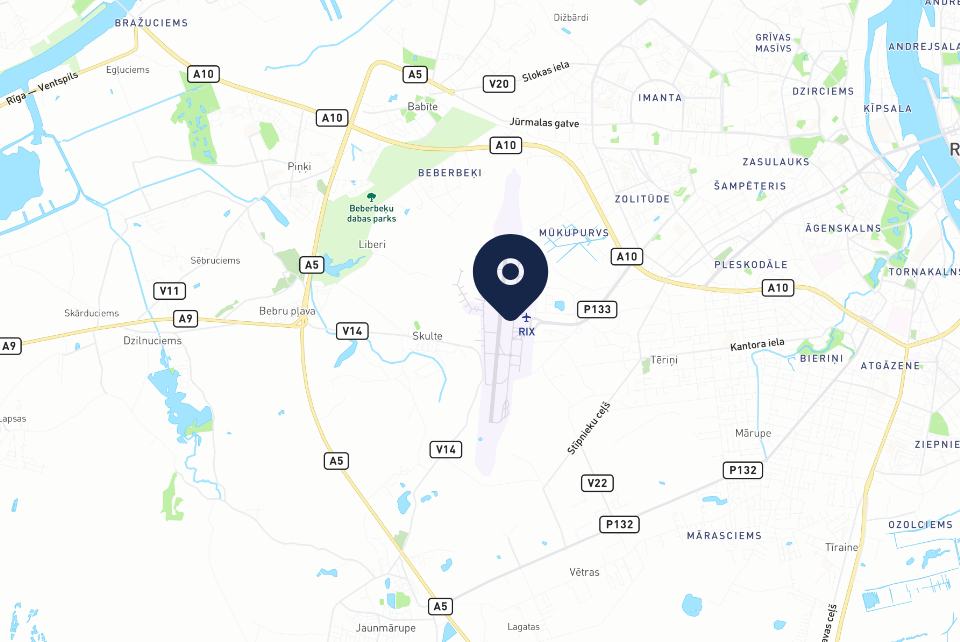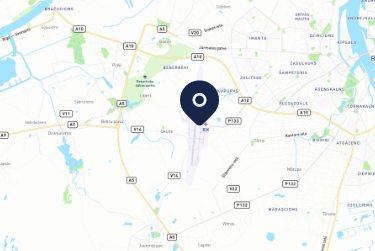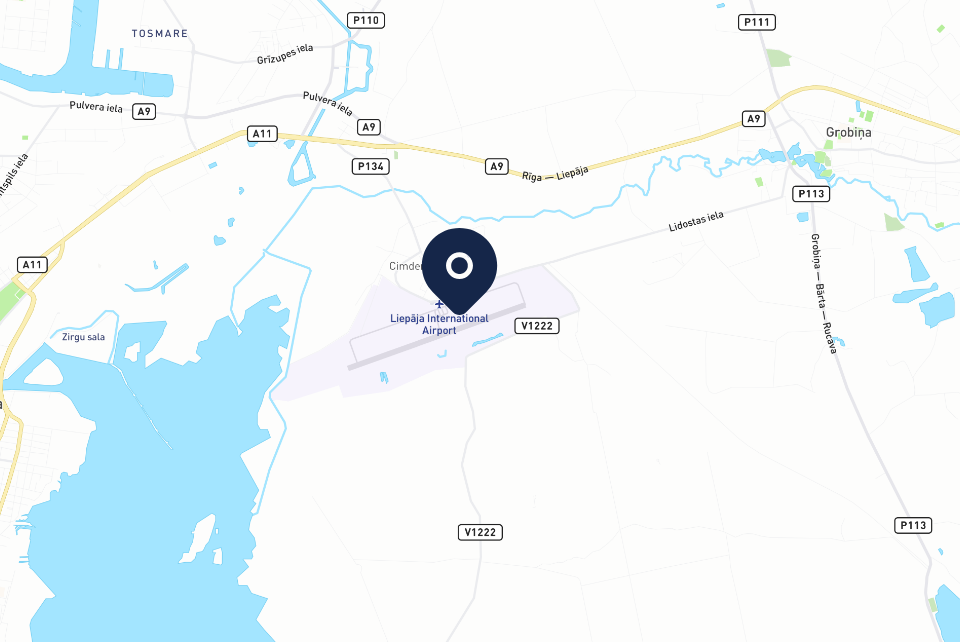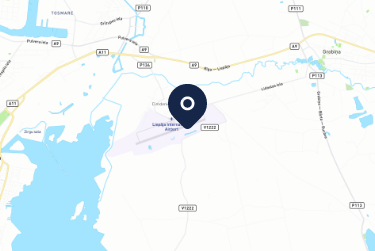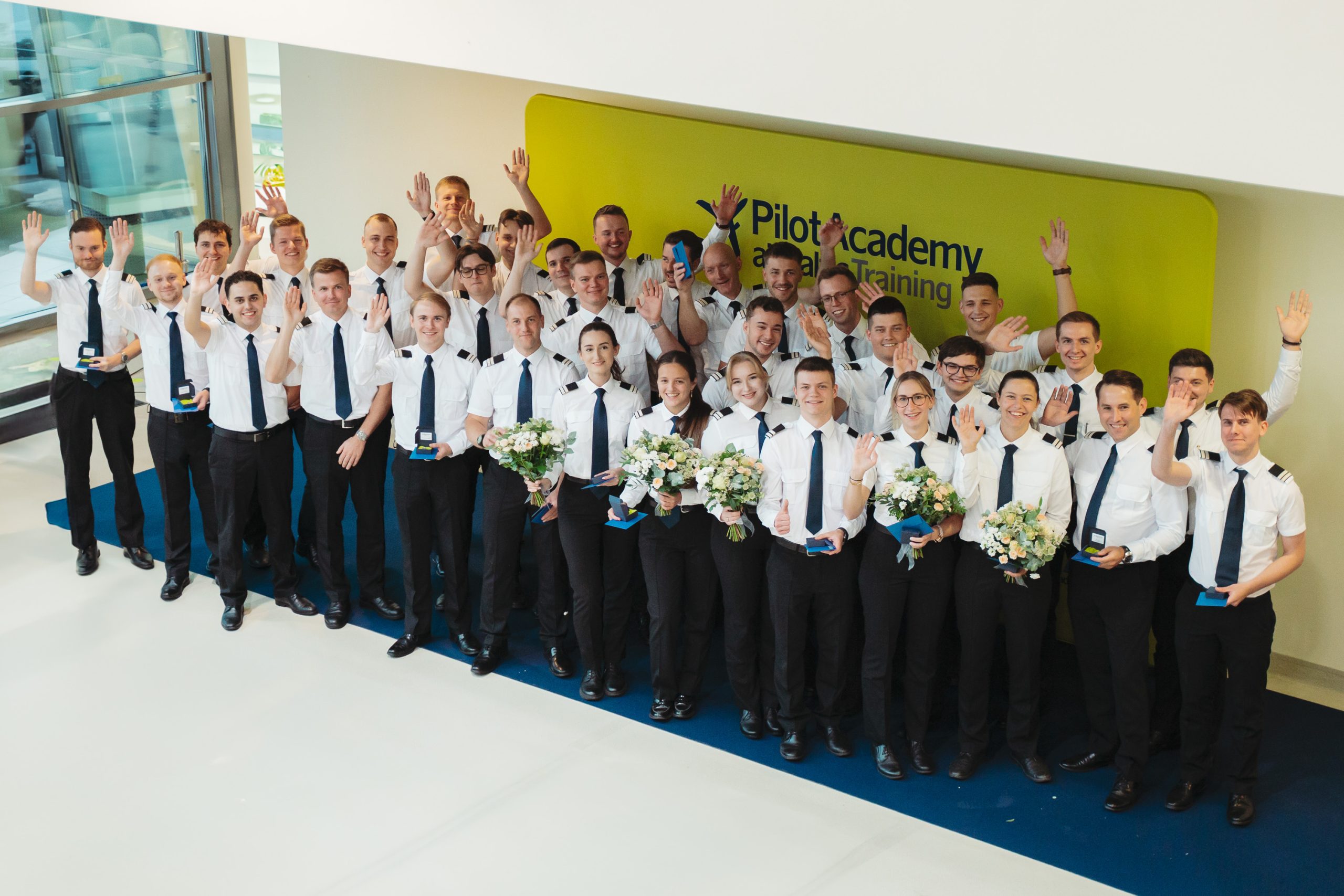
24.10.2025
Yesterday, 33 students graduated from the Pilot Academy of the Latvian national airline airBaltic, receiving a commercial pilot license upon completion of the full-time airline transport pilot program. This marks the largest graduation ceremony in the academy’s history.
Vilmantas Vaclovas Mažonas, CEO of airBaltic Training: “We are proud to congratulate the latest graduates of the Pilot Academy. Each of them represents not only personal dedication and achievement but also the next generation of aviation professionals shaping the future of airBaltic and the broader industry. Many of them are now preparing to take the next steps in their training, paving way to join the airBaltic team. The success of any airline relies on having skilled and highly trained professionals, and we are committed to fostering such talent.”
The graduates represent countries such as Austria, Estonia, Finland, France, Germany, Italy, Latvia, Lithuania, the Netherlands, Romania, and Sweden.
There are 141 active students at the airBaltic Pilot Academy at the moment. Most of them are from the Baltic countries, however, there are students also from other EU countries such as Denmark, Germany, France, Finland, Spain and Italy among others. Overall, more than 10% of airBaltic Pilot Academy students are female.
Over the years, 164 graduates of the airBaltic Pilot Academy have become employees of the airline – most of them now flying as First Officers, with several also taking on roles as training instructors. Notably, the academy has reached a new milestone as already four of its graduates have successfully completed their Captain upgrade, becoming the first Pilot Academy alumnus to serve as a Captain at airBaltic. This achievement demonstrates the strength of the program and the clear career path from cadet to Captain.
This is a unique cadet sponsorship program where, after passing the airBaltic’s pilot assessment and becoming an employee of the company, the airline provides financing (loan) for the rest of the studies.
Additionally, for more than a year now, airBaltic has expanded its training capabilities with its second Airbus A220 full flight simulator. This state-of-the-art addition significantly improves the airline’s capacity to train and maintain the qualifications of its growing team of pilots, supporting both the expansion of its fleet and the ongoing development of the Pilot Academy. It also provides young pilots with the opportunity to learn and practice using the latest, industry-leading technology – right from the start of their journey.
More information about the Pilot Academy: www.pilotacademy.com.
About airBaltic:
airBaltic (Air Baltic Corporation AS) is the leading airline in the Baltics and one of Europe’s fastest-growing carriers. As a hybrid airline, it leverages the upsides of both traditional network and low-cost carriers. Founded in 1995, today airBaltic operates one of Europe’s youngest fleets, consisting of 50 Airbus A220-300 aircraft, and employs over 2 800 people. In 2025, airBaltic became the first European airline to offer free high-speed SpaceX Starlink internet on its flights.
The company is majority-owned by the Latvian state, holding 88.37% of the voting rights, while Deutsche Lufthansa AG holds 10%, and the remaining 1.63% are held by other private shareholders.
airBaltic’s commitment to excellence is recognized by numerous prestigious awards, including being named the Best Airline in its region by Skytrax for three consecutive years. In 2025, airBaltic made its debut in the global rankings compiled by Airline Ratings, which recognized it among the world’s 50 safest and overall best airlines, as well as one of the leading global airlines in sustainability and among the most preferred airlines in Europe and the UK. The same year, APEX awarded the company the Five Star Major Airline Award for its commitment to providing a high-quality travel experience and before that – the Passenger Choice Award for Best Cabin Service in Europe. In 2024, the airline was awarded the PROS AI Innovator Award for leveraging AI to drive transformative outcomes and optimize operations.
